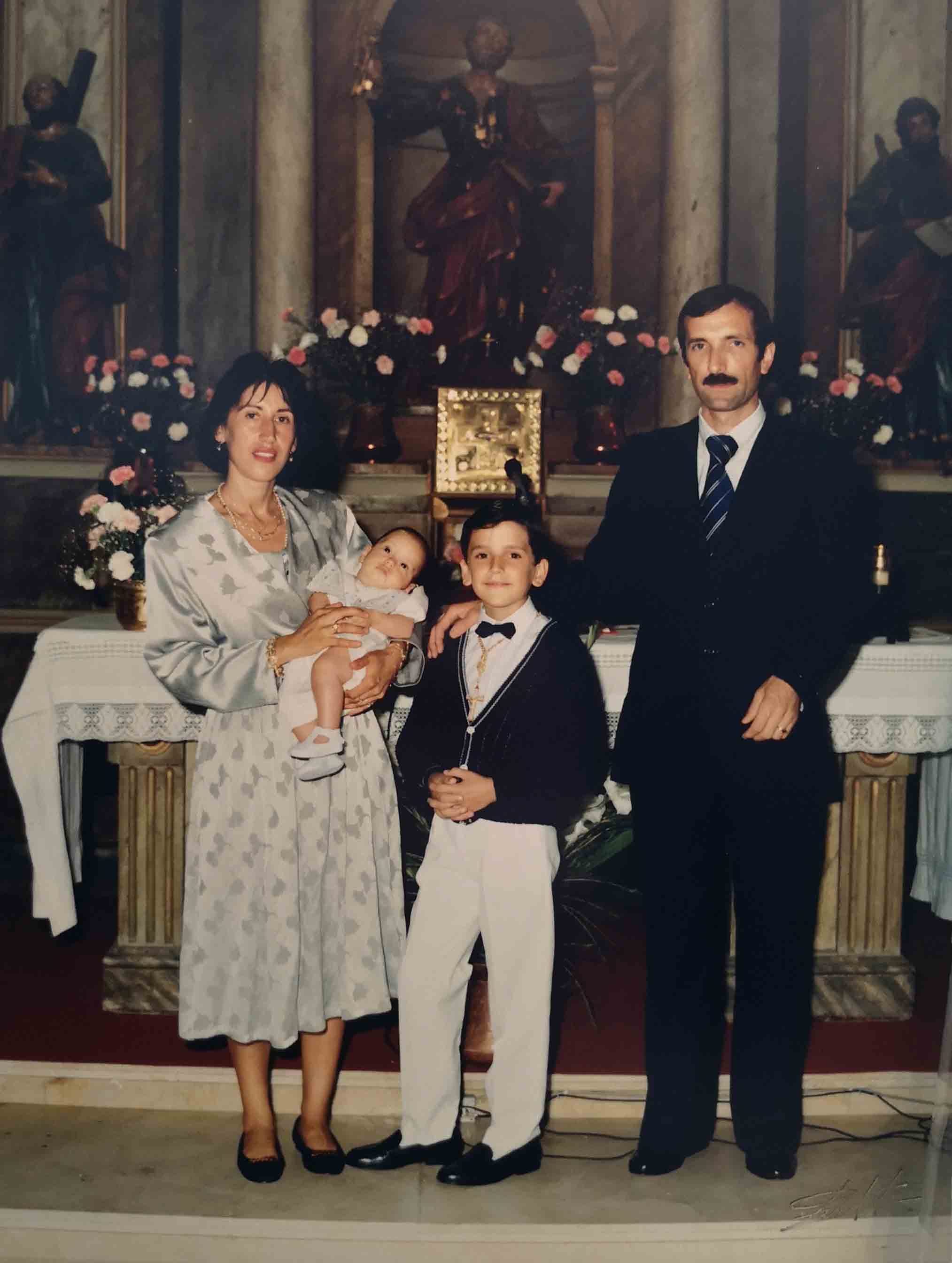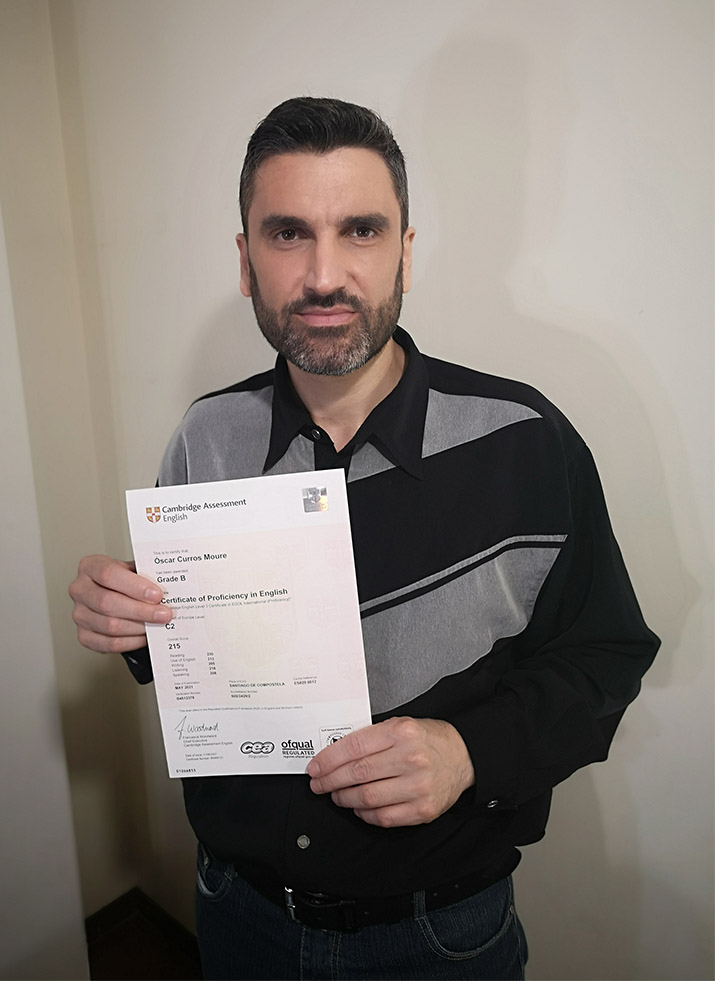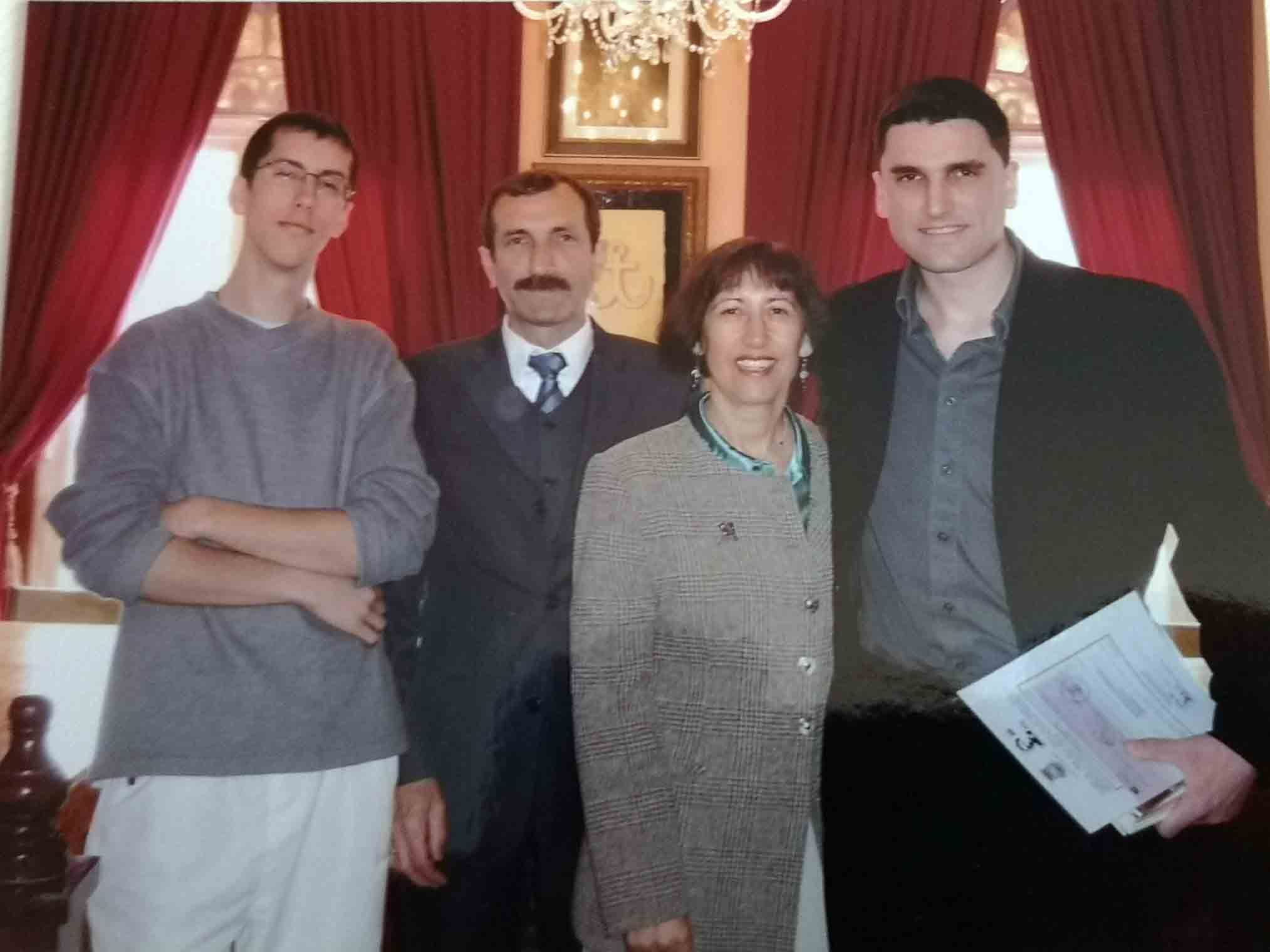My journey started with a major inspiration in my life. My father, Manuel Curros, made a career as an English teacher in the Spanish public education system. He’s now retired but still passionate about language.
I was born and raised in Santiago de Compostela. From an early age, my father got me interested in English. At home, he used to listen to music in English, ranging from pop or rock hits to a diverse array of styles. He enrolled me at a private English school that ran in parallel to the regular schooling in Spain, and when I was 16, I took B2 First from Cambridge English.
What I liked most at that time was listening to songs and learning the lyrics. This was a usual exercise in the English school I attended, presented in a ‘fill in the gaps’ way. It was a nice experience and preparing for the exam helped me become a better writer. I believe languages are a lifelong learning experience – you never stop learning, and each language has a beauty in its tone.

Being a Spanish translator is an exciting challenge. I really like what I do because every day I learn something new.
I did not always find English easy to learn, because growing up I was not that exposed to the language. The internet was not something in our lives, and it was only later, in my late twenties, when I travelled to London that I got real contact and experience of an Anglo-Saxon culture. Speaking English can be challenging because you tend to compare yourself to native English speakers, and it can be difficult if you have a different accent to someone from the United Kingdom or the United States. However, English has become my way of living and I suddenly had a realisation. My accent is a result of my cultural identity. I bring my personal and professional experiences to the table and use English as a means of communication with both native and non-native speakers.
I then moved to Bilbao to start my bachelor’s degree in Journalism. While living there, I continued to study languages. At high school, I had studied English, some French, Latin, and a bit of Ancient Greek. It was at this point that I prepared for and passed the C1 Advanced exam from Cambridge English. After a year I went back to Santiago de Compostela, where I majored in Journalism and got a Master’s degree in International Cooperation.
A major turning point was moving to Brazil in 2005, where I spent 11 years. I realised in Brazil there was a huge demand for Spanish translations, both from Portuguese and from English. That’s when I decided I wanted to be a translator.
During that period, I went to a private English school, where I obtained a C2 Proficiency qualification. Since I already had a qualification, I didn’t feel an immediate need to tackle Cambridge’s C2. But then, I decided to take it this year in 2021 to complete my certification series. Once again, my father encouraged me and supported me all the way from preparing for the exam to sitting for it.

After 11 years living and working in Brazil, having completed two graduate courses there, I returned to my hometown. I was there when COVID-19 hit Spain in March 2020. Around this time, I started to work for Certified Interpreting Services on a remote basis. I began as a consultant and now I am the Chief Spanish Translator.
I always wanted to be a journalist as I was drawn to writing and publishing. Now I apply my journalistic skills to a job with a strong focus on culture, involving translations from diverse languages into Spanish.

Being a Spanish translator is an exciting challenge. I really like what I do because every day I learn something new. For example, I often come across a word that I don’t know, which means going off and doing my research. In my work, precision is key. It’s important to go deep into several specialisation areas. I have to go beyond learning just general English, but learn specialist English too, such as technical and business language. I love the remote interaction with my team in the USA as we get to talk about cultural factors and in particular the cultural context of words. We also like to compare language use in the USA and in Spain.
Due to my job and the projects I’ve worked on, I’ve been asked to speak at several virtual translation events around the world, which I did. My main subject has been literary translation.
I feel like my greatest achievement is my current job – not only the position, but also the fact that I have the opportunity to help people communicate better.
That’s a passion that drives me to go on learning.